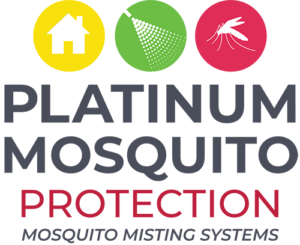
Keep yourself and your home safe with a comprehensive protection plan
Remember the Zika virus? In the summer of 2016, it spread rapidly from East Africa to Southeast Asia, South and Central America, and eventually set up shop here in the U.S., which resulted in a record 5,168 cases of Zika-related illness that year, according to the U.S. Centers for Disease Control and Prevention (CDC).
While upwards of 90 percent of those infected were from people who returned from visits to the Caribbean and select other regions, a small number caught the virus from local mosquitos in the U.S.
The CDC estimates that a 21 percent increase in birth defects during that period in southern Florida, Texas, and Puerto Rico may be the result of Zika. The virus has also been linked to miscarriage, stillbirth, and a rare illness of the nervous system called Guillain-Barré syndrome.
Things quieted down a bit in 2017 but may be changing course this year. The CDC reports that Zika infections are on the rise in 2018 and approximately three of every 1,000 newborns in 15 states and territories had a birth defect that could be attributed to the virus.
The likely culprit
Named for the Zika forest in Uganda, Scottish scientist Alexander John Haddow discovered the virus in 1947. A monkey in his lab came down with a new virus, which Haddow eventually found came from the Aedes africanus mosquito, a particularly aggressive species that bites in the daytime and likes to feast on animals as well as people.
His team captured hundreds of mosquitoes daily by using young boys from nearby communities, who allowed the insects to bite before the scientists plucked them off and dropped them into test tubes. Reports of the first human cases came in 1952.
Although there are several ways to contract the Zika virus (from a pregnant mother to her fetus, through sexual contact, and through blood transfusions), transmission by mosquito remains the most common.
Symptoms can last for up to a week and tend to include fever, headache, rashes, red eyes, and pain in the joints and muscles. The virus is rarely fatal and those infected likely develop immunity going forward.
Prevention and protection
Of the many ways to avoid Zika or other mosquito-borne illnesses, the best method is simple, smart bite prevention.
- Wear long pants and shirts with long sleeves.
- Spray your clothes with an insecticide such as permethrin or buy pre-treated clothing.
- Use insect repellents that are EPA-registered. They should include one or more of these active ingredients: DEET or para-menthane-diol, 2-undecanone, picaridin, or IR3535.
- Use any insecticide as directed and do not apply to children under two months old. Avoid products with oil of lemon eucalyptus or para-menthane-diol for children under three years old.
- Use air conditioning where possible and install screens on windows and doors. Repair holes in screens, no matter how small.
- Cover babies in strollers, cribs, or carriers with mosquito netting. If you sleep outdoors or in a room without window screens, use a mosquito bed net.
In addition to personal protection, there are ways to protect your property against mosquitos.
- Dump standing water. It is a fertile breeding ground for mosquitos. This means empty any rain barrels, bird baths, tins, tires, or other places where water may collect. Turn garbage cans and pails upside down.
- Change water in flower vases daily and get rid of excess water in flower pot plates. Mosquitos love to breed in your house almost as much as they do outdoors.
- Avoid bug zappers. They may actually attract more mosquitos to your property and kill beneficial insects.
- Consider an automatic misting system to repel mosquitos, no-see-ums, flies, fleas, and other buzzing, biting insects.
If you should contract the virus, it is a fairly simple matter to treat the symptoms. The CDC advises:
- Seek out a physician if you suspect infection.
- Let your body rest.
- Hydrate, hydrate, hydrate.
- Under guidance from a doctor, consider medicine that reduces fever and aches such as acetaminophen. Avoid aspirin or other non-steroidal anti-inflammatory drugs (NSAIDs), unless a doctor says it’s safe.
- As always, if you take medicine for another condition, consult your healthcare provider before adding another treatment regimen.
While it may seem that the Zika epidemic is far behind us, complacency and a lack of attention to basic outdoor safety could lay the groundwork for a resurgence. The team at Platinum Mosquito Protection stands ready to help you have a peaceful and mosquito-free summer.
For a free, on-site consultation about installing an automatic misting system, contact us today.
